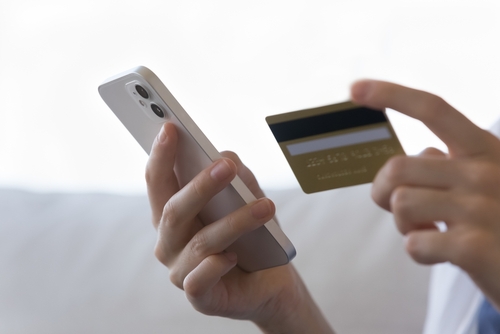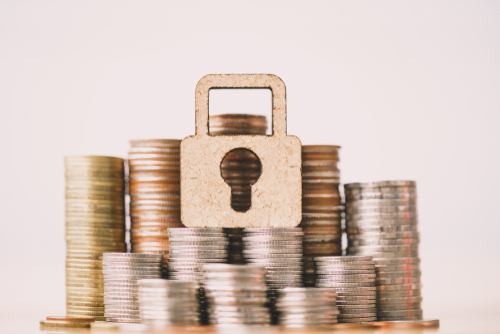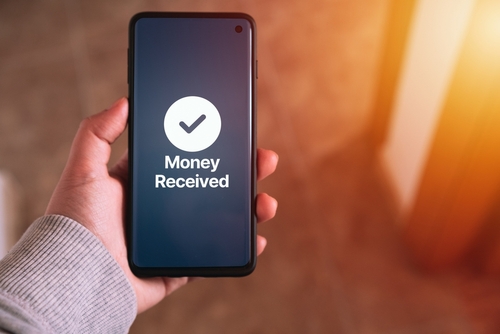Sending money to France might feel overwhelming if you’re doing it for the first time. Whether you’re supporting family members, paying for education, handling business transactions, or sending a gift, understanding the process helps you make informed decisions and avoid costly mistakes.
France has a well-developed financial system with multiple options for receiving international transfers. However, each method comes with different costs, delivery times, and requirements. Knowing what to expect before you send money can save you time, money, and stress.
This guide covers everything you need to know about sending money to France, from legal requirements to delivery options. We’ll help you understand the costs involved, typical transfer times, and safety considerations so you can choose the best approach for your specific situation.
Are You Allowed to Send Money to France?

Yes, you can legally send money to France from most countries. France is part of the European Union and maintains open financial relationships with countries worldwide. There are no major restrictions or sanctions preventing money transfers to France.
However, you’ll need to provide accurate recipient information, including:
- Full name (matching their identification)
- Complete address in France
- Phone number
- Bank account details (for bank transfers)
For larger transfers, you may need additional documentation. Many services require identity verification for both sender and recipient when transferring amounts over certain thresholds. This is standard practice to comply with anti-money laundering regulations.
Keep in mind that some services have country-specific licensing requirements. Always choose providers that are properly licensed to operate in both your country and France.
What Are the Typical Transfer Methods?

You have several options when sending money to France, each with distinct advantages:
Bank wire transfers offer security and reliability but often come with higher fees and slower processing times. Traditional banks typically take 3-5 business days for international transfers to France.
Digital transfer services have become increasingly popular due to their speed and competitive rates. Many apps and online platforms can deliver money to France within minutes or hours, often at lower costs than banks.
Cash pickup services allow recipients to collect money at physical locations throughout France. This works well if your recipient doesn’t have a bank account or prefers cash transactions.
Mobile wallet transfers are gaining traction, especially for recipients who use digital payment apps. This method offers convenience but requires the recipient to have compatible mobile payment services.
Bank account deposits let you send money directly to the recipient’s French bank account. This is often the most cost-effective option for larger amounts and provides a clear paper trail.
Each method serves different needs. Consider factors like speed, cost, convenience, and your recipient’s preferences when choosing.
How Long Will It Take for the Money to Arrive?

Transfer times to France vary significantly based on your chosen method and service provider.
Instant transfers can arrive within minutes using digital services, especially for mobile wallet or debit card deliveries. These typically cost more but offer maximum speed.
Same-day transfers usually arrive within a few hours and are available through many online services during business hours.
Standard transfers typically take 1-3 business days and often offer better exchange rates or lower fees than instant options.
Bank wire transfers generally require 3-5 business days, though some can take up to a week.
Several factors can affect timing:
- Time of day you initiate the transfer
- Weekends and French holidays
- Banking hours in France
- Payment method (credit card vs. bank account)
- Transfer amount and verification requirements
French banks typically process incoming transfers during regular business hours (Monday through Friday, 9 AM to 5 PM local time). Transfers sent outside these hours may not be processed until the next business day.
What Are the Costs Involved?

Understanding the true cost of sending money to France requires looking beyond upfront fees. Most services charge in multiple ways:
Transfer fees are the cost of your transfer amount. These can range from free promotions to significant charges, especially for bank wires.
Exchange rates represent an additional cost. Even small differences in exchange rates could cost you significantly on larger money transfers.
Payment method fees vary by how you fund your transfer. Credit cards often incur additional charges, while bank account transfers typically cost less.
Receiving fees may apply depending on how your recipient collects the money. Cash pickups, mobile wallets, and bank deposits each have different fee structures.
To compare costs accurately, always calculate the total amount your recipient will receive after all fees and exchange rate markups. A service with higher upfront fees might actually deliver better value if it offers superior exchange rates.
Send money to France with Remitly.
Get a special rate on your first transfer, plus no fees on your first two transfers.
Get Started
Are There Limits on How Much You Can Send?

Transfer limits depend on several factors and can vary significantly between services.
Service-specific limits are set by individual money transfer companies. These might be daily, monthly, or per-transaction limits that vary based on your verification level and transfer method.
Regulatory limits exist to comply with anti-money laundering laws. In many countries, transfers over $10,000 require additional reporting and documentation.
Payment method limits apply based on how you fund the transfer. Credit cards often have lower limits than bank transfers, and debit cards fall somewhere in between.
Higher transfer amounts typically require:
- Enhanced identity verification
- Proof of funds or income source
- Additional processing time
- More detailed recipient information
If you need to send large amounts regularly, consider services that offer higher limits for verified customers. Some providers increase limits after you establish a successful transfer history.
How Safe Is It to Send Money to France?

Sending money to France is generally safe when you use reputable, regulated services. France has strong consumer protection laws and a stable banking system.
Choose regulated providers that hold proper licenses in your country and comply with French financial regulations. Look for companies supervised by financial authorities and registered money service businesses.
Verify recipient details carefully before confirming your transfer. Incorrect account numbers or names can cause delays, rejections, or lost funds. Double-check all information with your recipient.
Watch for common scams that target international money transfers:
- Romance scams where strangers request money
- Overpayment scams involving fake checks
- Emergency scams claiming family members need urgent help
- Job scams requiring upfront payments
Protect your personal information by using secure internet connections and avoiding public Wi-Fi for financial transactions. Never share login credentials or respond to suspicious emails requesting account information.
Keep transaction records including confirmation numbers, receipts, and correspondence. These help track your transfer and resolve any issues that arise.
What Should the Recipient Expect?

Your recipient’s experience depends on how they’ll receive the money. Clear communication helps ensure smooth delivery.
For bank deposits, recipients need to provide accurate account information and may need to wait for their bank’s processing times. French banks typically credit international transfers during business hours.
For cash pickups, recipients must bring valid identification to authorized locations. They’ll need the transaction reference number and may need to answer security questions you provided.
For mobile wallets, recipients might need to download specific apps or create accounts. Some services send SMS notifications with instructions for claiming funds.
Important recipient considerations:
- Ensure they have required identification documents
- Verify their address and phone number are current
- Confirm they understand pickup procedures or account requirements
- Share transaction reference numbers securely
French recipients may need to report large incoming transfers for tax purposes. While this doesn’t prevent transfers, it’s worth mentioning for transparency.
Making Smart Money Transfer Decisions
Sending money to France successfully requires balancing speed, cost, convenience, and security. Start by comparing total costs rather than focusing solely on fees or exchange rates. Consider your recipient’s needs and preferences when choosing delivery methods.
Always verify recipient information before confirming transfers, and keep detailed records of all transactions. Choose regulated, reputable services that offer customer support in case issues arise.
Take time to research your options rather than rushing into the first service you find. Reading reviews and comparing features helps you make informed decisions that save money and reduce stress.
For the most current rates, limits, and delivery options, check directly with money transfer services.
Quick Reference Chart
| Category | Money Transfers to France: Key Information |
|---|---|
| Legality | Fully legal; France accepts international transfers. Accurate recipient info and ID verification required for larger amounts. |
| Transfer Methods | Bank Transfers: Secure, slow (3–5 days), higher fees Digital Services: Fast, affordable, ideal for smaller to mid-size amounts Cash Pickup: For recipients without bank accounts Mobile Wallets: Convenient but app-dependent Bank Deposits: Cost-effective for larger amounts |
| Speed | Instant: Within minutes via digital apps Same-day: A few hours if sent during business hours Standard: 1–3 business days Bank Wires: 3–5 business days, sometimes longer |
| Costs | Includes transfer fees, exchange rate markups, and payment method fees. Compare total cost, not just fees. |
| Limits | Depends on provider, payment method, and verification level. Higher transfers need ID, income proof, and may trigger reporting. |
| Safety | Safe with regulated providers. Use secure connections, avoid scams, and retain all receipts and confirmations. |
| Recipient Experience | Bank Deposits: Standard processing by French banks Cash Pickup: Requires ID and reference number Mobile Wallet: May need app setup and account verification |
| Best Practices | Compare costs and services, verify all details, keep records, and choose licensed, reputable providers. |
Frequently Asked Questions (FAQs)
What is the best way to send money to France?
The best way to send money to France depends on your specific needs and preferences. Some popular options include bank transfers, online money transfer services, and traditional wire transfers. It’s important to compare rates, fees, and delivery options before making a decision.
How long does it take to send money to France?
The time it takes for money to be delivered to France varies depending on the method you choose. Bank transfers can take 1-3 business days while online transfer services can offer same-day or next-day delivery. Traditional wire transfers may take longer due to additional processing times.
Are there any limits on sending money to France?
Yes, there may be limits on the amount of money you can send to France. This can vary depending on the method you use and the country you are sending money from. It’s important to check with your chosen service provider for any specific limits or restrictions.
Is it safe to send money to France?
Sending money to France is generally considered safe as long as you choose a reputable and secure service provider. Make sure to research the company’s security measures, such as encryption technology and fraud prevention methods, before making a transaction.
